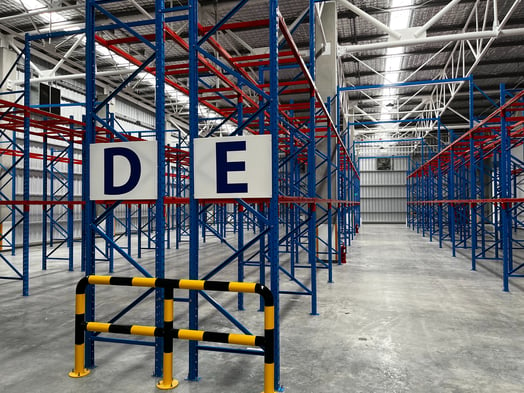Our guide on logistics service provider in the Pharmaceutical Industry
The selection of an outsourced service provider in the highly regulated and complex life science industry can be a lengthy and expensive process, fraught with difficulties not only during the selection process but also with the implementation and subsequent on-going management of the contract.
However, the right service provider can give both an efficient and reliable supply chain and the flexibility to help develop the shipper’s business.
Sadly, shipper satisfaction levels of logistics service providers (LSP’s) can be variable and have recently showed significant declines.
Conversely recent Gartner research suggests that most LSP’s are seen as successfully adding value and benefit to shippers and their businesses.
However, why does the relationship too often underwhelm the shipper and sometimes fail completely? Operational failure and/or change of LSP can be an expensive and tortuous process with service level impacts that can adversely affect the shipper’s business, therefore how best can this situation be avoided?
This article will offer some insights as to how best to select and manage your service provider partner, and although it concentrates on LSP’s, the same principles can be applied when selecting Contract Manufacturers (CMO’s), Contract Research Organisations (CRO’s), wholesalers, distributors and other third party organisations.
To help you navigate this article, it has been divided in 7 distinct sections:
- What are the key factor to consider?
- How is the market organized?
- Set the scene, what is the context?
- The heart: selection process
- Making it a reality: implementation
- Governance and development
- Conclusions

Key factors
Every outsourcing project is different although there are some common key factors such as capability, capacity, compliance etc. However, the scope of services, products, geography and markets involved etc. can differentiate the offerings available, and some aspects will depend upon the business model being pursued. Fundamental questions around the transaction model, buy vs. sell, inventory ownership etc. need to be clear in advance of the selection process.
Organisational and cultural factors must also be considered e.g., maturity of the organisation (shipper). How much in-house expertise is there? What local presence & knowledge is there? Can this be matched or indeed substituted by the LSP? Are there tried and tested processes in place, or will these have to be developed?
For smaller companies the reliance on their service providers is usually far greater, therefore making the right choice is even more important and organisational and cultural considerations often critical.
Different types of partners
LSP’s can offer a vast range of services, from basic transportation to integrated LSP’s to full buy/sell partners. LSP’s can be exclusively local players some focusing on a single main market, others are huge multinationals like DHL, UPS etc.
Shippers’ needs will change over time – sometimes dramatically for example with an acquisition, new or additional products to be launched, new markets targeted etc. This means that flexibility will be a key factor in choosing the right partner.
The scope of services offered by the major LSP’s can cover a whole range of activity from Distribution & Logistics to Order to Cash to GMP activities such as redressing. The differentiation among LSP’s, CMO’s, Contract Packers etc. is becoming more and more blurred as companies expand their service offerings and encroach on each other’s traditional business territory.
Understand your own organisation & context
This aspect is probably the most overlooked in the selection and management of your LSP. Often aspects such as the maturity of the organisation (both shipper and LSP), the future needs of the business and the skills & experience of the in-house logistics team are downplayed vs. cost, timing etc.
For example, if your company is a start-up, then it is likely that there will be significant reliance on the LSP not only for distribution services such as warehousing and transportation, but also other services and maybe even in-market knowledge. In this example it is possible that many non-traditional aspects of the supply chain are to be outsourced e.g., customer services, cash collection, fiscal representation etc. This model type can enable companies to expand more quickly as such an approach obviates the need for many internal hires, detailed internal processes etc. However, the shipper must be certain of the LSP’s cross functional capability and cultural match before proceeding.
Similarly, a local LSP might offer a specific, low-cost solution, but can it offer development or expansion possibilities? Is its service too limited?
By contrast a multi-national LSP might offer greater territorial reach and offer a greater range of services, but can it offer the shipper such as a small biotech the right focus and attention?
Always remember that multiple factors are involved, your business is unique!
Selection Process
This process should involve an integrated, cross functional approach to obtain best results. This part of the process can often be led by Procurement. Supply Chain or Logistics functions cannot however simply pass the project to their Procurement colleagues and hope for the best! Supply Chain and Procurement need to work closely together to obtain the best results and his driven through each of the following steps:
- User Requirements
- Competitive bids
- Assistance available
- Evaluation
- Final selection
- Contracting
The full selection process is further developed in this article,
Implementation
A key aspect of the selection is the LSP’s expertise in implementations and its commitment to the required timelines. Once the LSP is selected, it is vital that the implementation proceeds according to a detailed plan drawn up by the shipper and LSP.
Whilst detailed planning and execution can be seen as standard project management, best practice features a joint shipper and LSP dedicated team with agreed lines of accountability and representation across function and organisation; ideally executive support should be available and taken on board.
Regular update reports should keep all stakeholders informed and enable remedial or other action to be taken as appropriate. The celebration of a successful start to operations should also initiate a review of the project including implementation to learn from the collective experience.

On-going Governance and Development
Unfortunately, sometimes the on-going management of LSP (and indeed other partners) is left to the logistics specialists in isolation. Such an exclusive approach usually renders the relationship between shipper and LSP tactical rather than strategic as it typically fails to address or anticipate changes to strategy and many on-going business issues.
Best practice governance uses a formal, multi-disciplinary approach enabling cross functional and multi-level engagement across all key stakeholders, including appropriate representation at formal review and other meetings. This approach has the added benefit for the LSP of a far more in-depth understanding of its customer.
This is particularly important when there are significant changes to the shipper requirements e.g., new product launches, M & A activity, additional markets etc.
Conclusions
Successful outsourcing is critical to any life science business, enabling it to focus on its core activities, leverage the LSP’s in depth expertise and resources and obtain a more robust yet flexible supply chain.
However successful outsourcing demands a disciplined, cross-functional approach as well as accounting for softer factors such as cultural match in order to manage the process, operations, and associated risks. Done well, there can be many advantages to the shipper. Done badly, huge, and lasting damage to the shipper’s business can occur.
For further help in developing and optimising your supply chain in the pharmaceutical, biotech and life science industry, please contact us.
From here...
Listen to Chris on the Episode dedicated to Logistics Service Provider of our Podcast.
(Re)discover our article on the selection of logistics provider in the Pharmaceutical Industry
Discover more about our Supply Chain Operations consulting services for the Healthcare Industry!
Set a meeting to discuss with our team:




